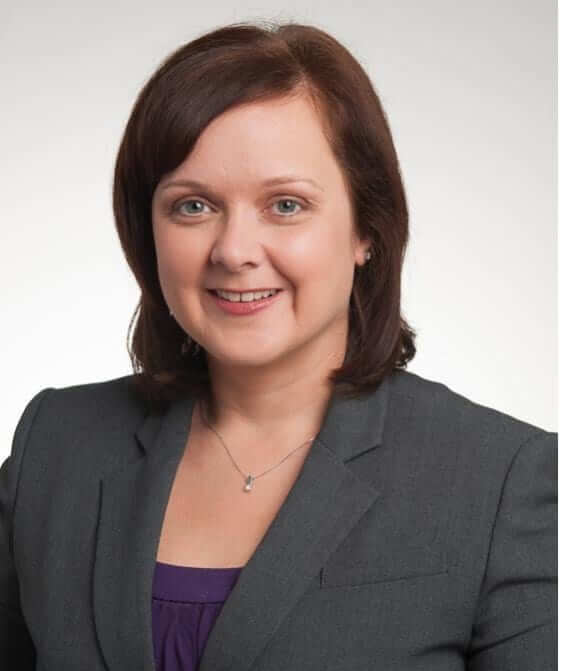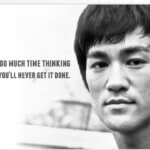(Women on Top in Tech is a series about Women Founders, CEOs, and Leaders in technology. It aims to amplify and bring to the fore diversity in leadership in technology.)
I am talking to Michelle Evans, Global Head of Digital Consumer Research at Euromonitor International, a leading independent provider of strategic market research. Michelle, who is based in Chicago, oversees Euromonitor’s digital research to provide actionable insights and in-depth analyses into how technology is fundamentally changing commerce. Recognized as a thought leader in digital commerce, Michelle shared her expertise across the industry and authors a biweekly column for Forbes.
How did you rise in the industry you are in?
I believe the secret weapon to whatever success I have had in my current career is due to my past career. Six years ago I joined Euromonitor International as a payments analyst after having spent nearly a decade as a professional journalist. It was during my career as a journalist that I learned how to communicate complicated concepts and write to an audience – both are lessons that have served me well as I began to write about the changing payments landscape.
More so than anything else, journalism teaches you how to tell stories. It is a skillset I use daily whether it is writing a research briefing, preparing a presentation for an industry show or crafting an email to a client to offer insights into a trend. Another aspect is the ability to take a complicated idea and distil it to its lowest common denominator. That has proven incredibly valuable as I began researching the convergence of two fields (payments and technology), which in their own rights can be highly technical. In my early days as a fintech analyst, I asked industry contacts a lot of questions to more fully understand the dynamics of the industry. After all, good writing is about simplicity and you can only write simply once you have a mastery of the topic.
The second thing that carried over from my days as a journalist is the idea of understanding your audience. As a journalist, you tailor your writing to appeal to your audience. Your approach will be different when reporting for a big-city newspaper as compared with a business wire service. It took a while for me to apply this learning to my second career, but it has proven immensely valuable now that I have. Once I understood our clients and the questions challenging their businesses, I started to connect the dots in my own analysis and from there the insights I had to offer improved. Both current and prospective clients took notice and in time my profile as an industry expert began to rise.
Why did you take on this role/start this startup especially since this is perhaps a stretch or challenge for you (or viewed as one since you are not the usual leadership demographics)?
After more than three years covering the mobile payments industry at Euromonitor International, I began to see a need for a new product that would better serve our digitally savvy clients. While we have long researched the impact of digital across many of our industries of research, including payments, I thought we could tell a more complete story of the digital consumer if we explored these threads within one offer. In the summer of 2014, my Euromonitor story took a distinct turn when I first brought forth an idea for this new product that would focus on how technology was fundamentally reshaping all aspects of commerce.
Over the course of that next year, I conceptualized the initial vision, pitched the idea to senior leadership and eventually built out the product that we introduced to the marketplace in February. As part of this work, I was promoted to my current role to reflect my new responsibilities in overseeing the research and commercialization of this new product offering. Conceptualizing, pitching and building out a new product has enabled me to harness a number of different skills as well as build new ones. While the experience has not been without challenges, it also has been one of the most rewarding of my professional life thus far.
Do you have a mentor that you look up to in your industries, or did you look for one, or how did that work?
While I have never formally sought out a mentor at any point in either of my careers, there have been several individuals, including friends, family and colleagues, who have provided advice along the way. During my time at Euromonitor International, I have been fortunate to have managers across different aspects of our business operations take an interest in my work and provide guidance to help mold me into a stronger contributor. This was especially true as I moved toward developing this new product and I learned more about our commercial operations. At Euromonitor, I also have benefited from a corporate grandparent relationship, in which a member of senior leadership has invested significantly into my development. Relationships like these propel your development further and further than you would ever be able to do on your own and for that I’m grateful.
Do you consciously or unconsciously support diversity and why?
Given my involvement in the fintech industry, which sits at the intersection of two male-dominated fields, I have observed the gender gap in this field first hand. The day this crystalized for me was when I was asked a couple years ago with introducing all the speakers at a conference as part of chairmanship role. I introduced at least a dozen men that day, but not one woman. The industry has made strides in recent years. Awareness has increased. I personally have become more involved with initiatives to support the inclusion of women in the field, including improved gender balance across conference programming. Groups also have formed around this “fintech” initiative. These groups have led to me connecting with other women in the field in all parts of the world.
What is your take on what it takes to be a great leader in your industry and as a general rule of thumb?
Managers and leaders are not synonymous. That is because leadership is not about a title or an anointment of power or authority. It’s about choosing to lead. A true leader is someone who is not afraid to neither take risks nor start the difficult conversations that will help the team reach the common goal. The most inspirational leaders are those who are discontent and dissatisfied with the status quo. They dream what seems like impossible dreams at times. They long to make a difference. They do not wait on the resources to start accomplishing that vision. The best of the best earn respect from others who in turn follow where they lead.
Advice for others?
Find something you are passionate about and do it well. The journey will not be easy, but the passion will make it bearable.
To learn more about Euromonitor International, please see http://www.euromonitor.com/.
I am a huge fan and cheerleader of Women Leaders — If you know of an AMAZING Woman Founder, CEO, Leader in Tech or you are one yourself — Write me at marion@marionneubronner.
AMPLIFY Conscious Business Leadership with me.





























